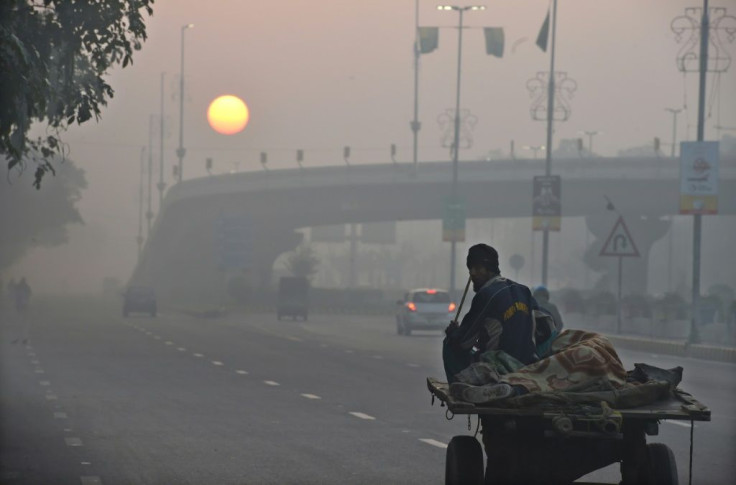Climate Change News: How The Coronavirus Lockdowns Temporarily Improved Air Quality In China

KEY POINTS
- The reduction in surface transportation was responsible for half the drop
- China returned to prepandemic levels once restrictions were lifted
- 73% Americans now accept climate change is real
Scientists say global emissions dropped 17% as the global economy shut down as a result of the coronavirus pandemic, but air pollution in China returned to prepandemic levels once lockdowns were eased.
An opinion survey released Tuesday indicated Americans’ attitude toward climate change remain unchanged amid the pandemic.
A study published in Nature Climate Change Tuesday indicated the COVID-19 pandemic altered energy demand around the world, reducing transport and changing consumption patterns. The drop in carbon dioxide emissions ranged as high as 26% in individual countries with the global average at 17%.
The scientists hailed from a variety of institutions around the globe, including the Woods Institute for the Environment at Stanford University, the Tyndall Centre for Climate Change Research at University of East Anglia and the Global Carbon Project at CSIRO Oceans and Atmosphere in Canberra, Australia.
“Our study reveals how responsive the surface transportation sector’s emissions can be to policy changes and economic shifts,” the researchers wrote. “Surface transport accounts for nearly half the decrease in emissions during confinement, and active travel [walking and cycling, including e-bikes] has attributes of social distancing that are likely to be desirable for some time and could help to cut back [carbon dioxide] emissions and air pollution as confinement is eased.”
The scientists said, however, the results may be short-lived.
“The social trauma of confinement and associated changes could alter the future trajectory in unpredictable ways, but social responses alone, as shown here, would not drive the deep and sustained reductions needed to reach net-zero emissions,” they said.
Another report seems to back up that conclusion. A study by the Centre for Research on Energy and Clean Air found China’s reopened economy brought with it a surge in air pollution, will levels rapidly rebounding to prelockdown levels.
“Levels of health-harming air pollutants in China have exceeded concentrations at the same time last year in the past 30 days, for the first time since the start of the COVID-19 crisis,” the report said.
The report said nitrogen dioxide levels fell 40% compared with 2019, with carbon dioxide falling an estimated 25% as consumption of electricity produced by coal-fired plans, cement manufacturing and oil consumption all fell.
“It’s obvious that once the economy starts to recover and production and transport to resume, much of the air pollution would return. What’s not obvious is whether air pollution will overshoot pre-crisis levels, especially when many economic sectors are still reeling. Such an overshoot would signify a “dirty” recovery in which the more highly polluting sectors are leading,” the report said.
The climate attitude survey by researchers at Yale and George Mason universities indicated more 73% those surveyed believe climate change is real, and 62% accept that human activity is largely responsible. Six percent reject reject the premise.
© Copyright IBTimes 2025. All rights reserved.






















